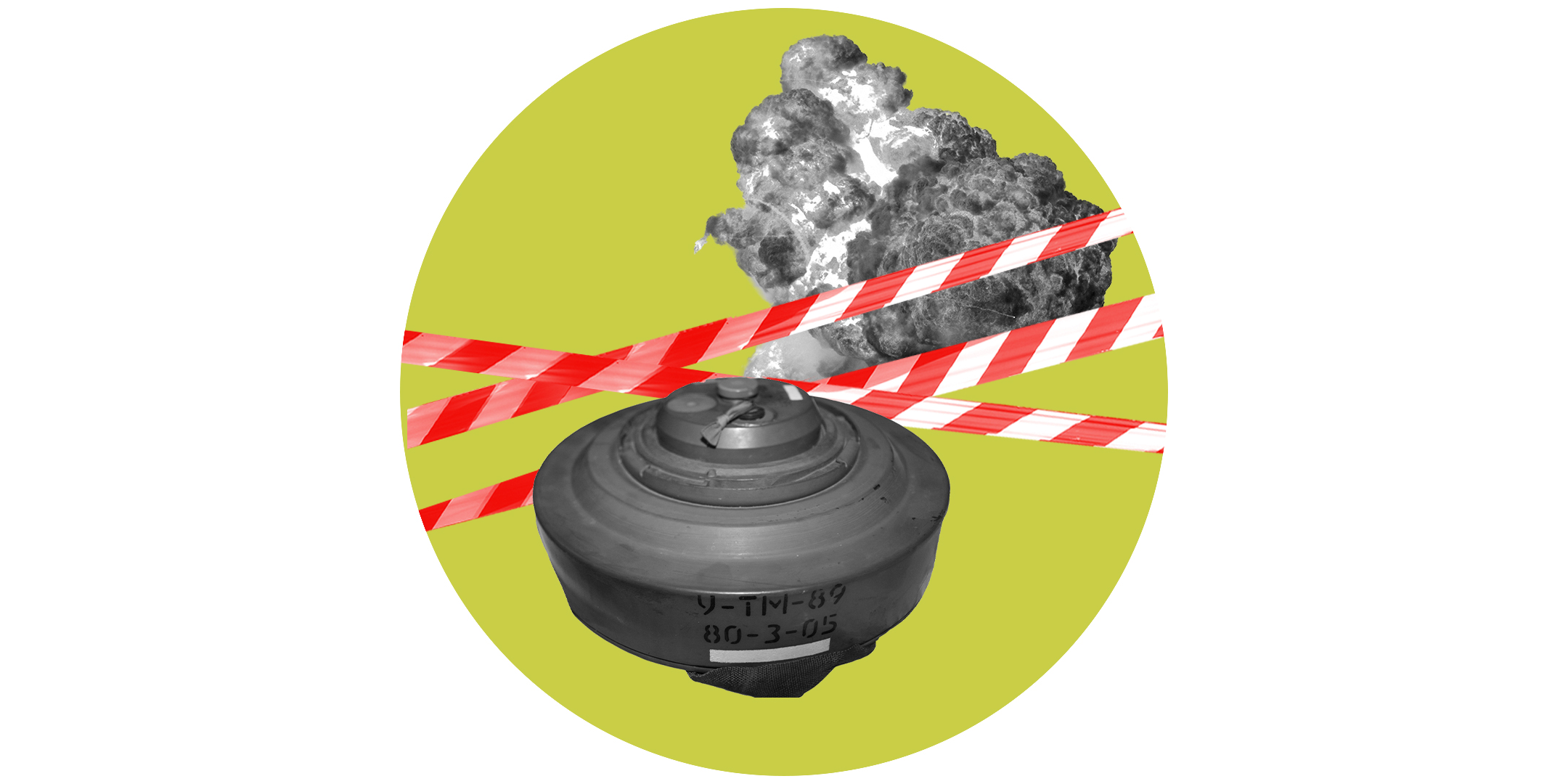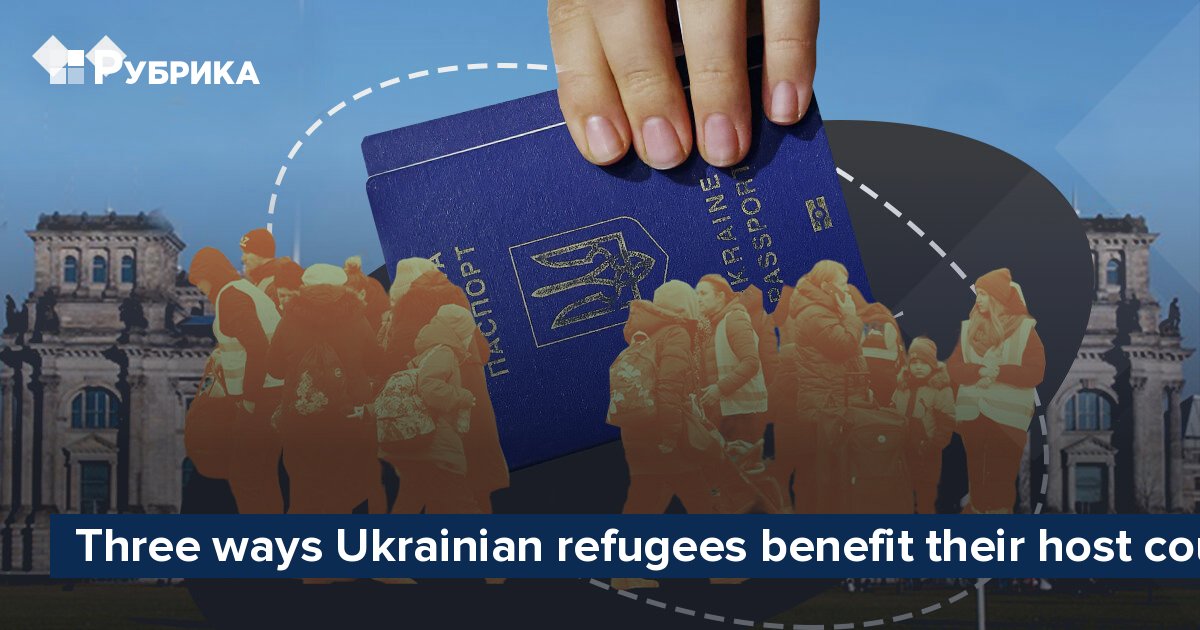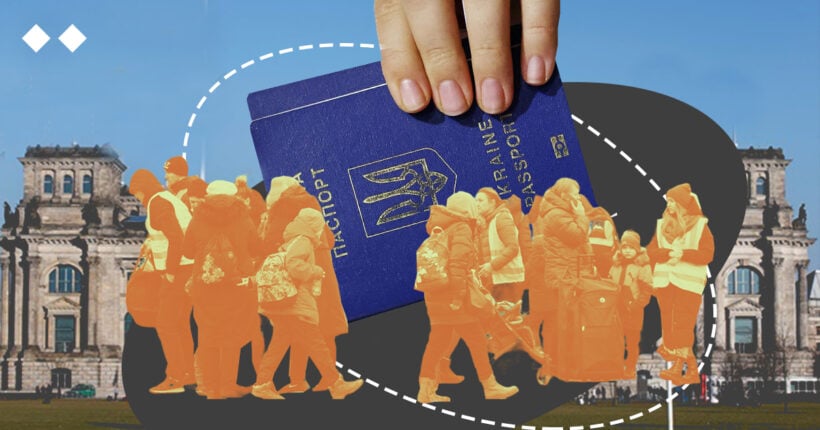
The refugee crisis has long been a topic of discussion for politicians, economists, and ordinary citizens of the hosting countries. Since 2022, when Russia launched the large-scale invasion of Ukraine, 6.3 million Ukrainians have fled the war and sought safety abroad, in the EU and other world countries.
At first, the influx of so many people put a strain on countries welcoming displaced Ukrainians — the fact on which Russian propaganda has tried to put its own spin, spreading misinformation, fake news, and blatant lies about refugees from Ukraine.
While Russian fakes claim "Ukrainians are a burden for everyone," in reality, migrants from Ukraine peacefully integrate into new societies, thank and give back to the communities that accepted them, and even drive positive change in their new countries.
Rubryka lists three ways Ukrainian refugees benefit their host countries.
1. Ukrainians are employed taxpayers
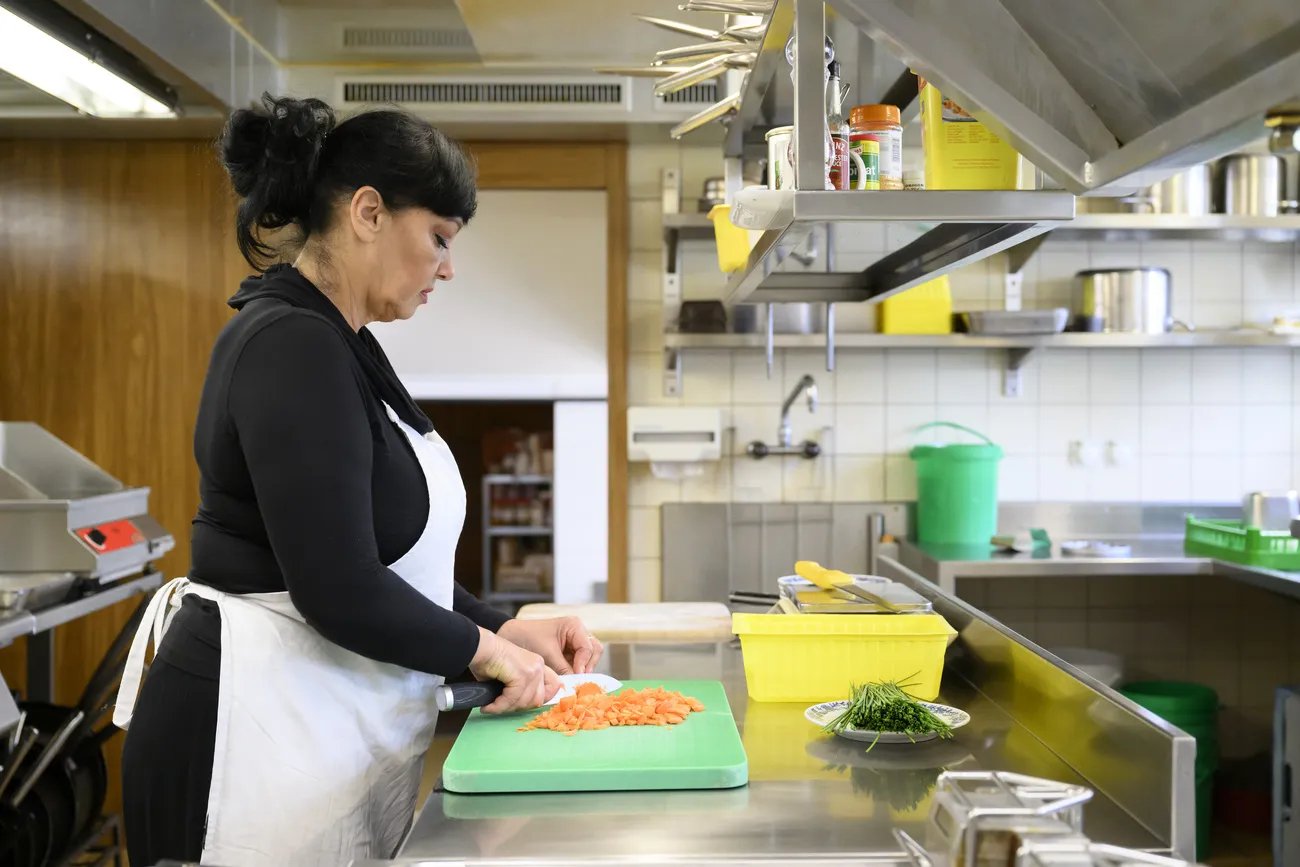
Ukrainian refugees: A displaced Ukrainian woman works in a restaurant outside the Swiss capital, Bern. Photo: Keystone/Anthony Anex
Being hard-working has always been part of the Ukrainian people's culture. In Ukraine's society, hard work is praised, and not working is often frowned upon. When countries of the EU and North America welcomed Ukrainian refugees at the start of the invasion, they permitted them to work, and Ukrainians used the opportunity to secure employment and financial stability for their children.
In the EU, 60.4% of Ukrainian refugees are of working age (aged 18 to 64), with the other share being children and older people. Despite difficulties finding work in many European countries due to a language barrier and bureaucracy, as of February 2023, nearly 40% of Ukrainian refugees were either employed or self-employed.
The shares in different countries vary. For instance, in Poland, 65% of Ukrainians who fled war to Poland are employed — the highest among EU countries. Paweł Szefernaker, Poland's Deputy Minister of Internal Affairs, commented, "The percentage of those who have found employment is unprecedented. There is no such case in any other country in the world when it comes to migrants or refugees. This shows that Ukrainians arriving in Poland want to start working almost from the first day."
Ukrainian refugees also pay more taxes to the host countries than they receive in support. In late 2022, the Center for Migration Research at the University of Warsaw reported that Ukrainian refugees contributed €2 billion in taxes to Poland — three times the amount the country spent on supporting them. Similarly, as of September 2024, support for refugees cost the Czech Republic $323 million, while the government received $517 million from taxes paid by Ukrainians.
Migrants also boost the host country's economy by purchasing products and services, which drives the need for more jobs. "Rather than taking jobs from locals, they fuel economic growth and job creation," says Daria Mykhailyshyna, senior economist at the Center for Economic Strategy. "In many European countries facing labor shortages due to aging populations and low birth rates, Ukrainian migrants help fill these gaps."
Nicolas Schmit, European Commissioner for Jobs and Social Rights, and Jacob Kirkegaard, the German Marshall Fund expert, mirror the statement. The influx of highly educated Ukrainian refugees is helping to alleviate labor shortages in many European markets, especially with the long-term challenges of aging populations.
2. Ukrainians grow local economies as business owners

Ukrainian refugees: Ukrainian businesses were exhibited during the II Polish-Ukrainian networking event, "Business in the City." Photo: Natalka Volosatska/Radio Svoboda
Ukrainian refugees have also boosted the economies of their host countries by creating businesses and jobs. In some EU member states, particularly Poland and the Czech Republic, which welcomed 957,505 and 370,980 refugees, respectively, the numbers of Ukrainian entrepreneurs doing business are extraordinary.
In Poland, Ukrainian entrepreneurs have set new records, opening up nearly 30,000 businesses in 2024 and paying about $1.2 billion in taxes to the Polish state budget. The trend continued into 2024, with Ukrainians founding 11.2% of all new businesses in Poland in the first six months of the new year. Ukrainian entrepreneurs now account for 45% of all foreign companies in Poland.
The Czech Republic has also seen a significant rise in Ukrainian entrepreneurship. In 2023, 55,000 private entrepreneurs were registered, and nearly one in ten (4,904) of these new businesses were founded by Ukrainian citizens — a substantial jump from the pre-war period. According to data from the Czech Credit Bureau (CRIF), this surge reflects the growing entrepreneurial spirit of Ukrainians.
3. Ukrainians give back to their new communities
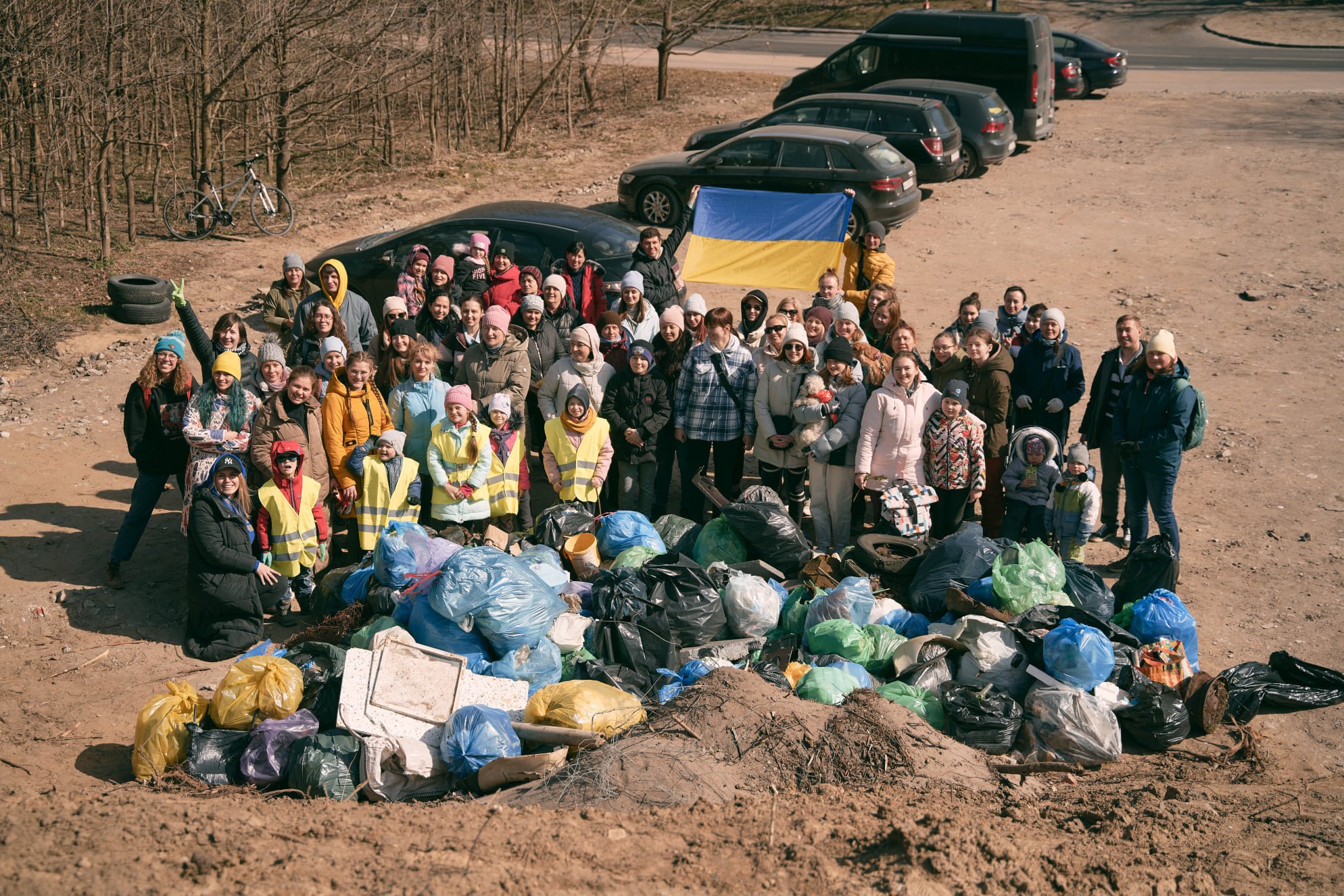
Ukrainian refugees: Ukrainian refugees organized community clean-ups of parks and forests in Polish cities to thank Poland for helping them. Photo: Witold Szabłowski/Facebook
Ukrainians are immensely grateful to the countries that welcomed them since the start of the full-scale war. To give back to their new communities in a meaningful way, Ukrainian refugees organized clean-up events to beautify cities, parks, beaches, and other public places in the Czech Republic, Turkey, Poland, Romania, and beyond as a gesture of appreciation for the support and refuge.
In spring 2022, in Polish cities such as Suwałki, Wrocław, Kraków, Gdańsk, and others, Ukrainians cleaned streets, parks, and forests, collecting trash. In Antalya, Ukrainian migrants did similar clean-up events "to thank Turkey for its hospitality." Likewise, in Romania's Mamaia Nord, Ukrainian refugees cleaned the beaches at the resort where they were offered shelter.
Through these simple but powerful acts, Ukrainian refugees made their host countries a little bit better. Maria, one of the organizers of a community clean-up in Prague, stated, "This is a token of gratitude for all the people who have given us such a warm reception and incredible help. We want to give something back, even if it's small."

"Їм не стільки цікаво мати щось з української культури, як просто підтримати нас": як українці в британському Лідсі заохочують підтримку України

Український Дім у столиці Трансильванії: як громада переселенців з нуля створила спільний простір




